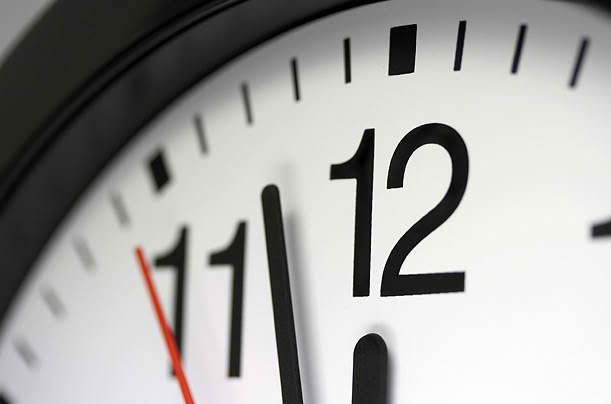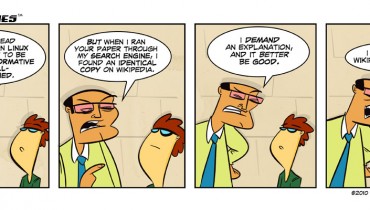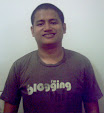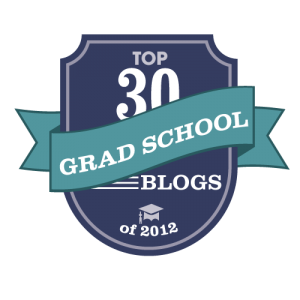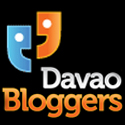Why should a grad student blog?
Should I or should I not? But before you dismiss blogging as a time waster while you’re in grad school, here are some of the valid reasons why a grad student should maintain a blog: [...]
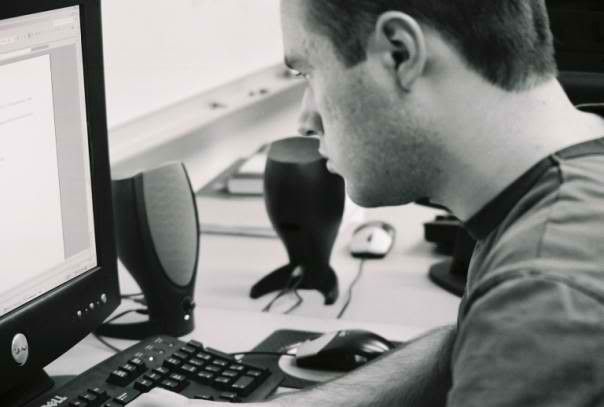
Surviving grad school: Army style
According to the US Army Survival Manual, S.U.R.V.I.V.A.L. means: S – Size up the situation. Your surroundings, physical conditions, and equipment. U – Use all your senses undue haste makes [...]
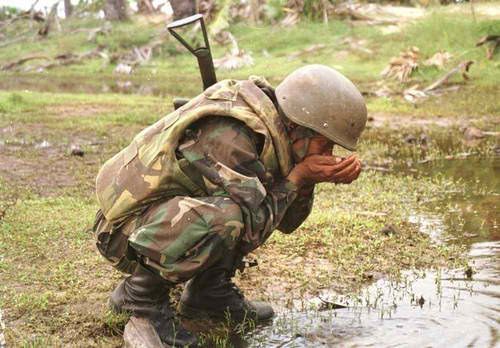
Why Go to Grad School?
You may wonder why some still go to grad school once they finish college? Is it because they are afraid to work or no one hires them so they might [...]

Thursday, December 31, 2015
Why I will never forget 2015?
Posted by Mike Arieh Medina on 6:07 AM
Well, 2015 will now depart and 2016 will arrive several
hours from now.
When 2015 started, I promised myself this: that I will
publish lots of scientific papers. How many? I didn’t give myself a target; I
just promised that I’ll push myself to the limits. I did publish seven (7) of
them. These are all open access papers so you don’t have to worry finding them
online. Here’s the list:
Seven publications in a year, that’s one scientific article in
every two months (or less). I probably won’t be able to replicate this feat in
the years to come so that’s why I’m posting this as a reminder that if you
permit yourself to push outside your physical and mental boundaries, you’ll achieve
something good if not great.
Have a productive 2016 everyone. From Grad School Jungle!
Wednesday, November 25, 2015
The great dissertation hoaxes
Posted by Mike Arieh Medina on 4:08 PM
“Originality is undetected plagiarism.” - William Ralph Inge, (1860-1954), English author, Anglican priest, and professor of divinity at Cambridge.
Around two weeks ago, Apple Daily, a Hong Kong print
newspaper reported an alleged plagiarism committed by a top university official
in Lingnan University.
In 2013, Herdip Singh, associate vice president and comptroller of Lingnan
University submitted his doctoral dissertation at the Tarlac University,
Philippines.
 |
| Singh |
Singh’s dissertation entitled “Corporate Governance in the
China Region: Implication to Business Management” was found to be substantially
similar to a master’s thesis submitted by Wu Chunshui, a Chinese student at
Lund University, Sweden in 2010.
Using Lund University’s plagiarism detection software, it
was revealed that the two manuscripts were 96% similar.
Currently, Singh refused to comment on the issue.
This however is not the first time such issue
came about in academia. Here are examples of popular people from the past who
were alleged (and proven) to commit plagiarism with regards to their
dissertations.
German Defense
Minister Karl-Theodor zu Guttenberg
 |
| Guttenberg |
In 2011, Guttenberg’s doctorate degree from the University
of Bayreuth was stripped of him after he admitted copying several sources for
his thesis in 2006 without citing them. This issue earned him the moniker as
the minister for cut-and-paste, and Baron zu Googleberg. As a consequence, Guttenberg resigned as minister thereby ending his promising political career.
Russian President
Vladimir Putin
 |
| Putin |
Putin claimed to hold a doctorate degree in
economic science at the St. Petersburg Mining Institute in 1996. However, it
was reported that Putin never really attended the institute. Later, researchers
were able to get a copy of his dissertation. After inspection, Putin’s hardly accessible manuscript turned out to be littered with plagiarized content all throughout.
Civil Rights Activist
Martin Luther King Jr.
 |
| King |
In the later part of 1980’s, King's doctoral dissertation at
Boston University entitled “A Comparison of the Conception of God in the
Thinking of Paul Tillich and Henry Nelson Wieman” contained exact texts from
another dissertation in the same university three years earlier. Further
investigation also revealed that his other academic papers as well as his speeches were also plagiarized.
Despite this, Boston University did not revoke
his doctorate degree further saying that in fact King’s dissertation made an
intelligent contribution to scholarship.
How about you, do you know of anyone who were suspected or found out to have plagiarized their PhD dissertation? You can add to this list by using the comment link below.
Wednesday, September 3, 2014
Blogging at IE Matters Conference
Posted by Mike Arieh Medina on 11:01 AM
 |
| Blogging and preparing for the IE Matters Conference at the Holiday Inn Galleria Manila |
 |
| A landmark of the SEEd-AMORE Program in Marilog, Davao City |
True enough, about two years later today I am here at Holiday Inn Manila Galleria for the “Making Impact Evaluation Matter: Better Evidence for Effective Policies and Program”, a conference for impact evaluation at the
Asian Development Bank Headquarters in Ortigas, Metro Manila. Our impact evaluation study of SEEd-AMORE found its way through for presentation. This is organized by Asian Development Bank (ADB), International Initiative for Impact Evaluation (3ie), and Philippine Institute for Development Studies (PIDS).
It’s a dream come true to have the opportunity to meet with impact evaluation
professionals from around the world. Furthermore, it makes me proud to be a
part of the goals of impact evaluation by providing evidence for development programs necessary for creating better
policies and programs for society.
Saturday, January 12, 2013
The Truths of Reading
Posted by Mike Arieh Medina on 6:08 AM
Martha Maxwell of Dartmouth College Academic Skills Center exposes some myths of reading. Here’s what I’ve learned from it.
You don’t have to read every word
Writers sometimes compromise sentence length in order to make grammatically and artistically favorable paragraphs. In so doing sentences become longer when in fact only 3-5 words in a sentence are the only ones that matters to give its meaning. So finding the right keywords in a paragraph can be enough to make you understand what the paragraph explains. The rest is just grammatical mumbo jumbo.
It’s not enough to read only once
My grad school professor used to tell us (his students), that his former professor of the same course we are currently attending, has read the required textbook ten times. And so his students (including my professor) must read the same textbook 20 times in order to be better prepared. Thus, we being the third generation students must read the same textbook 30 times to have the same effect.
Furthermore, textbooks aren’t like novels, or storybooks which can be easily understood within one sitting. Textbooks, scientific journals, or articles are meant to be painstakingly read many times in order to fully grasp the concept it intends to explain. So, don’t worry if you cannot understand a passage in your first try. It’s meant to be that way, so read again.
It’s OK to skip passages in reading
You may think that in order for you to understand a certain reading, you must read every word, sentence or paragraph. However, a technique called skimming and scanning can be handy in case you don’t have the time to comprehend lots of concepts.
Furthermore, some books are like a full meal, it has appetizers, a main course, and perhaps dessert. You won’t go hungry even if you skip either one of them (or two).
Sounding out words while reading slows you down
This is what’s being taught to us by our teachers in primary school; reading aloud. Eventually it caught us between the teeth. Now, even when we are reading silently, we still get the habit of saying it aloud in our minds, thus we still read as fast as we talk. That should not be the case; the brain is faster than our mouths, thus reading can be faster than talking. I bet when you are reading this paragraph, you are currently moving your lips (hehehe! Gotcha).
My advice: Next time your read, try humming inside your mind, eventually you’ll beat the habit of moving your lips while reading.
So what other things about reading do you know about? Share it with us here by typing your comment below.
Writers sometimes compromise sentence length in order to make grammatically and artistically favorable paragraphs. In so doing sentences become longer when in fact only 3-5 words in a sentence are the only ones that matters to give its meaning. So finding the right keywords in a paragraph can be enough to make you understand what the paragraph explains. The rest is just grammatical mumbo jumbo.
It’s not enough to read only once
My grad school professor used to tell us (his students), that his former professor of the same course we are currently attending, has read the required textbook ten times. And so his students (including my professor) must read the same textbook 20 times in order to be better prepared. Thus, we being the third generation students must read the same textbook 30 times to have the same effect.
Furthermore, textbooks aren’t like novels, or storybooks which can be easily understood within one sitting. Textbooks, scientific journals, or articles are meant to be painstakingly read many times in order to fully grasp the concept it intends to explain. So, don’t worry if you cannot understand a passage in your first try. It’s meant to be that way, so read again.
It’s OK to skip passages in reading
You may think that in order for you to understand a certain reading, you must read every word, sentence or paragraph. However, a technique called skimming and scanning can be handy in case you don’t have the time to comprehend lots of concepts.
Furthermore, some books are like a full meal, it has appetizers, a main course, and perhaps dessert. You won’t go hungry even if you skip either one of them (or two).
Sounding out words while reading slows you down
This is what’s being taught to us by our teachers in primary school; reading aloud. Eventually it caught us between the teeth. Now, even when we are reading silently, we still get the habit of saying it aloud in our minds, thus we still read as fast as we talk. That should not be the case; the brain is faster than our mouths, thus reading can be faster than talking. I bet when you are reading this paragraph, you are currently moving your lips (hehehe! Gotcha).
My advice: Next time your read, try humming inside your mind, eventually you’ll beat the habit of moving your lips while reading.
So what other things about reading do you know about? Share it with us here by typing your comment below.
Tuesday, January 1, 2013
A list of lists
Posted by Mike Arieh Medina on 12:44 AM
In fact, everyone right now has their own list for the holiday season. List of gifts to buy, list of people to thank, list of things to do (and not do) before and after the year ends, let’s face it, lists are everywhere.
Here is a list of reasons why people love to make lists:
- Lists won’t take much time to write
- Lists won’t take much time to read
- Lists are simple
- Lists are easy to understand
- Lists are easy to remember
- Lists are universal, everybody does it
If you still don’t know what I meant by that, then here’s a list of different lists posted in Grad School Jungle.
- A list of time management tips
- A list of survival tips
- A list of weird websites
- A list of computer tips
- A list of financial management tips
- A list of eBook sites
- A list of funny classroom dialogues
- A list of celebrities who value education
- A list of lovely things to write
- A list of reasons why I blog
Sunday, October 28, 2012
Three Vital Points in Choosing Your Thesis/Dissertation Topic
Posted by Mike Arieh Medina on 12:29 PM
So, you are now in your final year in grad school. But before you finish your degree, comes the final rite of passage: your thesis or dissertation.
Have you come up with your desired topic then? Are you having trouble conceptualizing what direction your research will go into?
Some would give you a large list of suggestions on how to choose your research topic. However, it all boils down to three essential factors in your choice of topic. For me, it must be something you know, like, and can.
What You Know
It’s important that you choose a topic that you are very well versed on. This could be on a subject that you are very familiar with for several reasons (e.g. your line of work, your favorite subject, related to your hobby, etc.). Don’t dwell on a topic in which you still have to learn or read more or have limited reference.
It’s important that you choose a topic that you are very well versed on. This could be on a subject that you are very familiar with for several reasons (e.g. your line of work, your favorite subject, related to your hobby, etc.). Don’t dwell on a topic in which you still have to learn or read more or have limited reference.
You know what I’m talking about: Your knowledge on a certain topic gives you one leap of advantage in terms of time spent in formulating your research outline than having to learn something first before deciding what to write.
What You Like
It’s not enough that you know a great deal about a certain topic. What usually matters is your interest in it. The topic must be something that can grab your 100% commitment. Never choose a topic in which you have the slightest hint that you’ll get bored with it in a short while.
Remember this: If you do something you like and enjoy doing, you can’t stop until you finish it.
What You Can
The tendency for people who are too excited to start on something is that they overestimate. What I mean is that sometimes when we feel we know so much about one thing and at the same time extremely enjoy doing it, we seem to think of goals which are way over the roof and eventually impossible to realize. So, what I really meant is to think of a research project which you can implement within your capability.
The tendency for people who are too excited to start on something is that they overestimate. What I mean is that sometimes when we feel we know so much about one thing and at the same time extremely enjoy doing it, we seem to think of goals which are way over the roof and eventually impossible to realize. So, what I really meant is to think of a research project which you can implement within your capability.
Hint: Time, Money, and Effort are limiting factors for what type of research you are going to undertake.
I know these three points are not enough to make you finish your thesis or dissertation on time. But it’s a good way to start. Any way, you can share your own thoughts by adding other important points I might have forgotten.
Friday, November 25, 2011
Climate Change Adaptation through Education
Posted by Mike Arieh Medina on 11:38 PM
It’s another great time for educators and administrators as they got together and talk about climate change adaptation during the 16th National Senior Educators Assembly in Environmental Protection and Management. The event was held on November 24 – 25, 2011 at the Legend Hotel, Puerto Princesa City, Palawan. This was organized by the Philippine Association of Tertiary Level Educational Institutions in Environmental Protection and Management (PATLEPAM) in cooperation with the EMB-DENR and Palawan State University.
The Meeting showcased the reports of selected universities nationwide on their climate change adaptation experiences. The reports focused on the following areas: coastal and marine, health, agriculture, and forestry. These were presented respectively by Prof. Rowena Zoilo (NSTP Director, Bicol University), Dr. Roger Guzman (Executive Director, Philippine Federation for Environmental Concerns), Dr. Helen Sigua, MD (Professor, Ateneo School of Medicine and Public Health), Dr. Leonora Ngilangil (Professor, Don Mariano Marcos Memorial State University), Dr. Helen Pondevida (Research Director, University of Southeastern Philippines), Dr. Santiago Utzurrum, Jr. (Professor, Silliman University), and Dr. Olga Nuneza (Vice Chancellor for Research and Extension, Mindanao State University – Iligan Institute of Technology)
Guest speakers who opened the ceremony were the following: Dr. Teoticia Taguibao (OIC-President, Palawan State University), Dr. Ruth Guzman (VP for Research, Extension, and Information Services, Rizal Technological University and Chair, PATLEPAM Board of Directors), Ms. Gay Maureen Alagcan (Outcome Manager, MDGF 1656 Programme Management Unit, National Economic Development Authority), Mr. Reynaldo Pallaya (OIC-Provincial Environmental Management Officer, Environmental Management Bureau-DENR), and Vice Mayor Lucilo Byron of Puerto Princesa City.
Other topics presented in the meeting are the following:
Assessment on the Extent of Knowledge of Educators on Climate Change Adaptation (Ms. Sofia Alaira, UPLB-SESAM)
Assessment of the Extent of Knowledge of Administrators on Climate Change Adaptation (Dr. Ruth Guzman, RTU)
Assesment on the Extent of Climate Change (CC) Integration in Selected Higher Education Curricula, and the Enhanced Syllabi with CC Concerns (Dr. Cely Binoya, CBSU)
Resource Inventory on Climate Change Adaptation (Dr. Ninfa Pelea, BU)
Following the presentations is the open forum and the PATLEPAM Business Meeting.
The Meeting culminated with the body's approval of PATLEPAM General Assembly Resolution No. 1 series of 2011 otherwise known as “Mainstreaming Climate Change Adaptation (CCA) and Disaster Reduction and Risk Management (DRRM) in the Curricular Programs of Higher Education Institutions (HEI’s). The resolution asks the Commission on Higher Education (CHED) to issue a memorandum (CMO) obliging higher education institutions (HEI’s) in the country to integrate CCA and DRRM in the school curriculum.
After the meeting, the participants had the chance to visit the Puerto Princesa Underground River, the world's longest navigable subterranean river and recently been announced as one of the New 7 Wonders of the Natural World.

